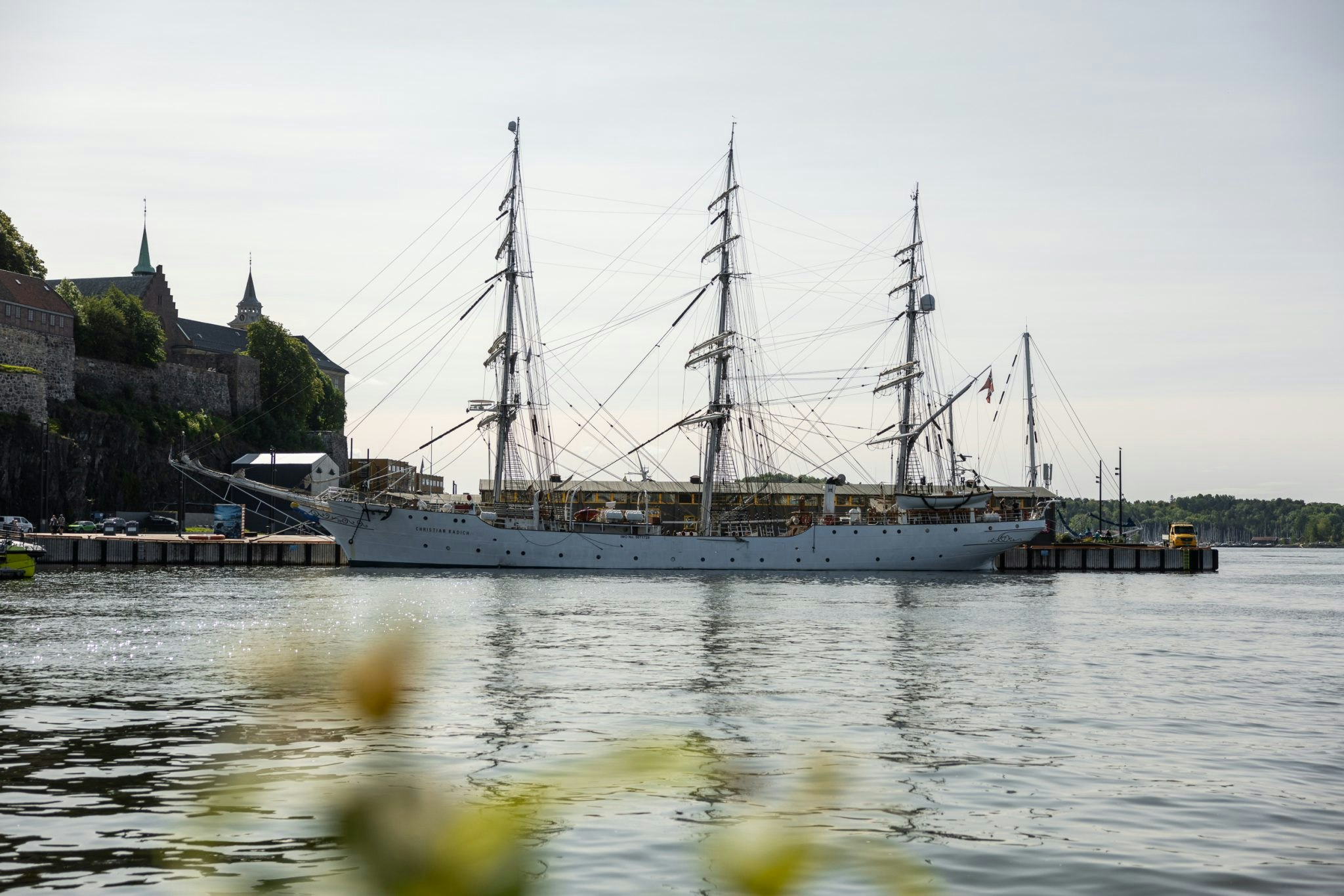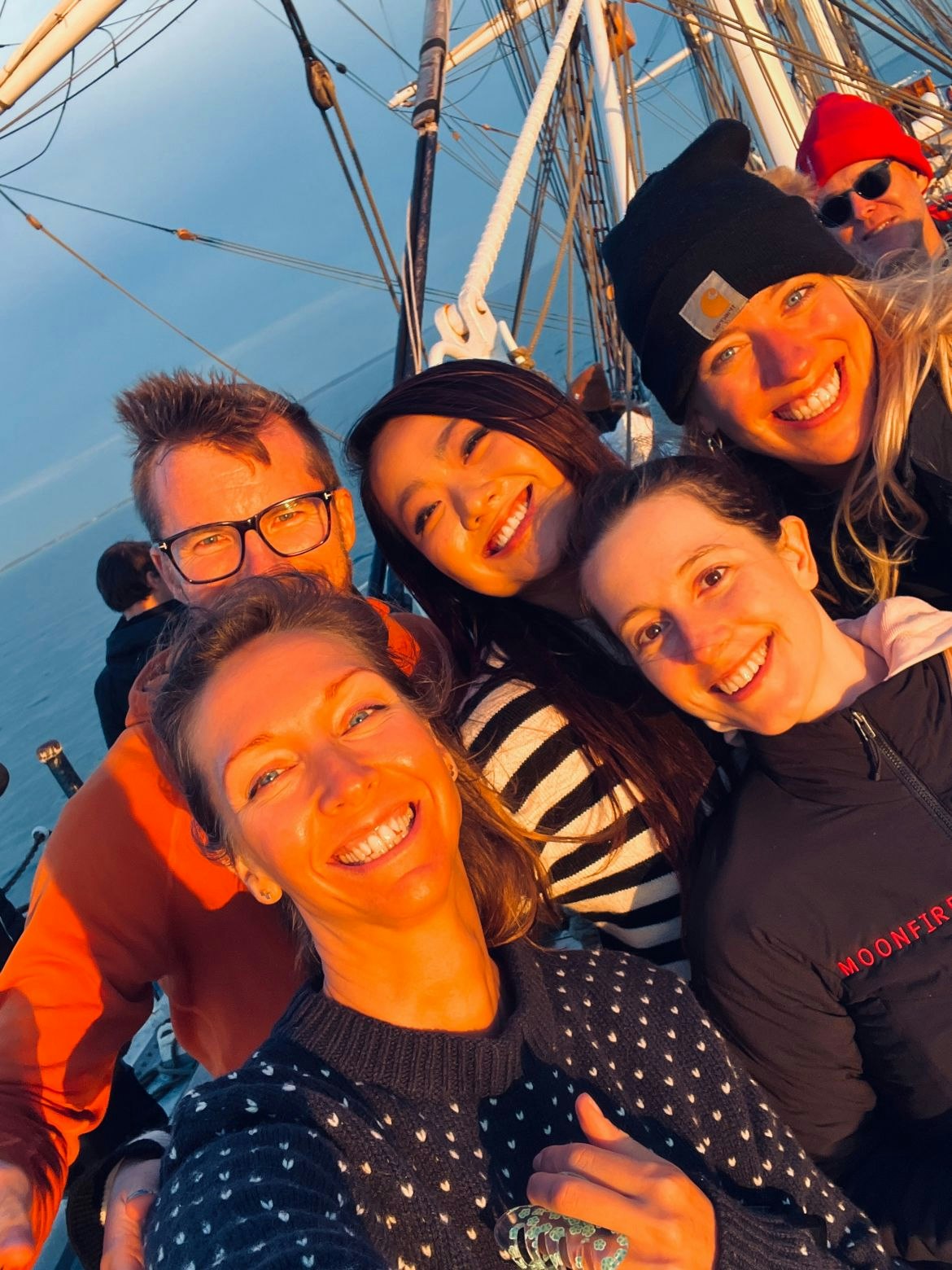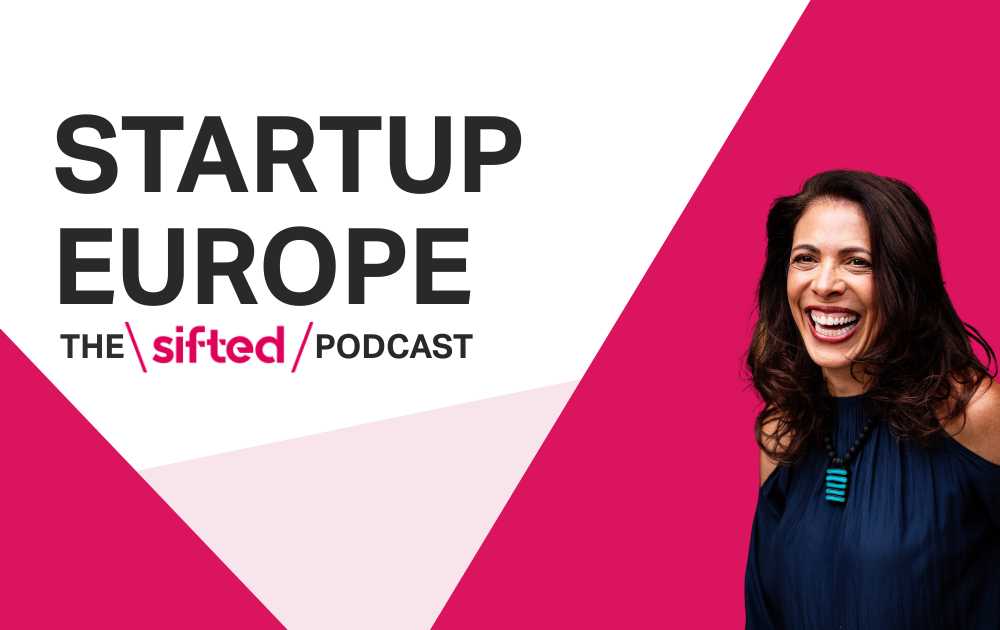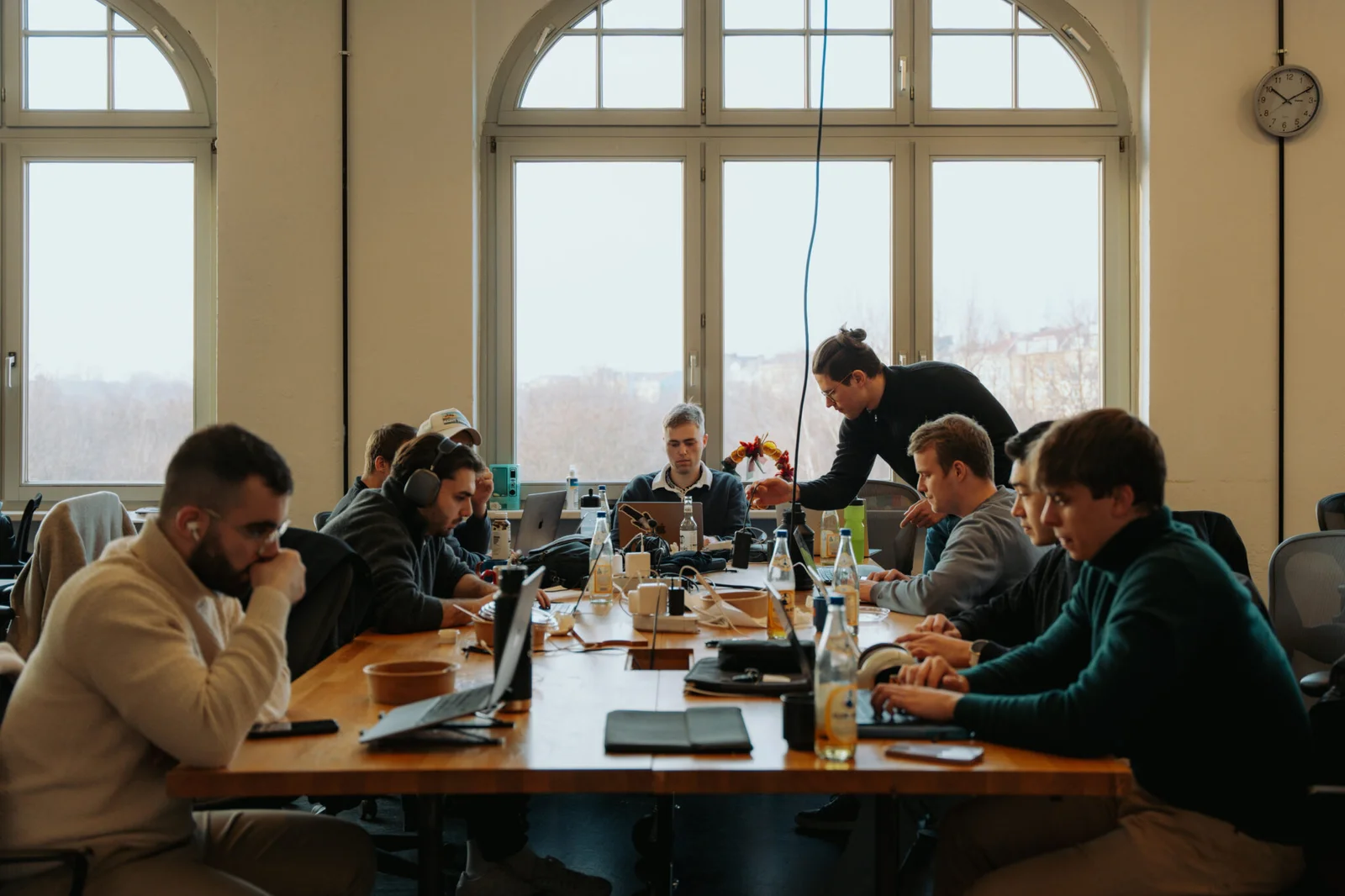Here’s a challenge: you’re stuck in a confined space for 48 hours with people who work in tech. But you can’t ask them about their job or who they work for. Could you do it?
One of the ultimate insults in startup land is to be called “transactional” — the kind of person who asks for a LinkedIn connection within five minutes of saying hello — but we all often default to “What do you do?” as that initial icebreaker question.
My bet is that you’d find not talking about work with strangers harder than you think. 😏

This was the challenge I faced when I stepped on board a three-mast, fully rigged Norwegian ship, the Christian Radich, in Copenhagen last Friday. (It is famous enough to have its own Wikipedia page, its own swag and its own movie.) I would be sailing with about 70 founders, VCs and ecosystem builders for 48 hours to Oslo — the ultimate networking slash bonding event that blurred the lines between personal and professional, like tech so loves to do. And, at least for the first few questions, we were encouraged by organiser Nordic VC ByFounders to try to really get to know our fellow sailors, beyond their LinkedIn profiles.
Food as motivation
Without work conversation to fall back on, things got deep quickly. One participant asked the group — before we had even left port — “What is your motivation in life?” I wasn’t ready for D&Ms yet, so I answered: “Food.” Little did I know the weekend would prove this to be painfully true.
I had more reason than others to not talk about my job right away. I’m not looking to raise money from any VCs and I’m not some investor looking for the next hot company. And when I mention I’m a journalist, tech people often get defensive or shut down — or, if I’m really lucky, they lecture me about how the media gets tech wrong.
The group was split into three watches, with two shifts a day for each group: 8 to 12 (am and pm), 12 to 4 and 4 to 8. I was in the last group, which meant I would have the pleasure of a 4am wake-up to help set sails, navigate and keep watch. After pulling lots and lots of rope in full-on ocean mist, breakfast never tasted so good. Nothing like bonding below deck in the cosy hold over the taste of freshly baked bread and butter.
On the first night, we all gathered on deck to admire the sunset and the wildlife. Could we see tuna, or the Norwegian “nise”, which Google Translate told us was “porpoise whale” in English? The Swedes had a good time trying to pronounce “porpoise” and everyone had their hypothesis about which tail signalled tuna and which signalled whale. The simple pleasures, right?
We were schooled in rope tying and ship steering, with a dash of “how to deal with pirates for dummies”. (In case you’re wondering, it boils down to “if all else fails, surrender”.) We also got the crew to admit that there was, indeed, a ghost on the boat.
Amid the physical work and the brisk weather, some people managed to remain incognito for longer than others. (I was especially pleased that one participant I had a lot of extended chats with didn’t know I worked at Sifted until I sent them a note post-trip.) And when we dug into people’s experiences and lives while scaling masts and milling around the deck, we found that often the most surprising fact about people had nothing to do with their current job (I am looking at you, the founder who used to organise workouts for thousands of people in China).
The journalist on board
But, inevitably, word spread that “someone from Sifted” was on board. And, from day two, I found that a lot of my conversations started with, “Oh, you’re the journalist.”
But perhaps because we were all a bit more relaxed around each other, I didn’t get the kind of guarded responses I’m used to. I was able to talk through with people what my job means — no, I’m not recording everything you’re saying; no, I’m not going to write an article about your spicy views on universal basic income; no, I don’t appreciate you pitching me your product as soon as you know I’m a journalist.
I had a chance to explain that some of the most fruitful journalistic work doesn’t come through formal interviews but through osmosis; by simply being around people, having conversations, getting a feel for what issues really matter to the community we’re reporting on.

One participant told me she had recently been given a “networking budget” and I encouraged her to use it to take the Sifted journalist in the city where she lives out to lunch. She was surprised that she didn’t necessarily have to have an agenda to talk to the journalist, but I assured her it was exactly those kinds of informal conversations, over coffee or lunch (or over sail furling and unfurling, in our case), that provided the best inspiration. I wish more people in our industry understood this.
Unfortunately, we don’t always have the luxury of this kind of “slow networking”. But, as one great improvisation session on board reminded us, stronger connections are made if we focus on making some sort of positive emotional connection when we meet someone new. And that can be as simple as complaining about the traffic or the sea drizzle together.
That’s why I encourage all our journalists to go out to events and simply mingle. The startup and VC industry is still young and often doesn’t understand that by having an informal conversation with a journalist, you’re doing the whole ecosystem a service. You’re helping us keep our finger on the pulse and you’re helping us with ideas, so that our work can be as helpful as possible to you.
And you might be surprised by what you learn from us. It’s our job to talk to everyone, remember — and we’re more than happy to share our views and our insights.
We — founders, investors and journalists alike — work in tech because we want to work with smart, interesting people. So don’t forget that the next time you meet someone new.



